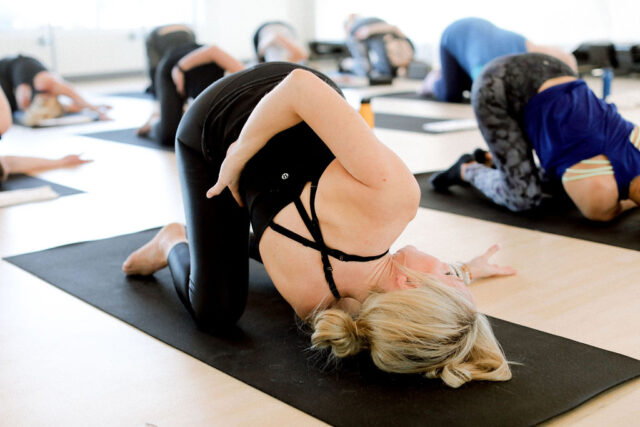7 Signs of Over-Exercising
- By Dr. Jenni Bruning Brown
- January 20, 2018
Is there such a thing as “too much of a good thing”?
When it comes to wellness or health, we tend to think that more is better. But that’s not always the case. You can have too much of a good thing when we’re talking about exercise and fitness. When you cross the line to over-exercising, it can be bad for you and your body.
One of the most important parts of an ideal fitness plan is recovery. Allowing your body to reap the benefits of your workout is critical, and your body must have enough time in between workouts to recover.
While many have a hard time exercising at all, some don’t realize that it can be addictive once you get started. Not only does it feel like an accomplishment, intense workouts release a variety of feel-good chemicals into your brain, including endorphins, which give you that “endorphin high.” While these are good feelings, if you cross over and begin working out too much, your body can start to see more harmful results than beneficial ones. This can happen when you either end up exercising too frequently or with too much intensity.
If you’re someone who spends four or five pretty intense hours working out every week, you probably aren’t at risk of over-exercising. But, if you spend significantly more than that, or if working out is the only thing on your mind—you might want to read on.
Dr. Jenni Bruning Brown, Master Trainer at Fly | A Fitness Revolution, says there are some signs to look out for to know if you might be on the verge of over-exercising. Are any of these happening to you?
- You’re always getting sick. Working out excessively produces a chemical called cortisol in high amounts, which can decrease immune function and cause you to get sick more often. Additionally, when your body is constantly trying to rebuild from workouts but doesn’t have time to, your immune system can become compromised, making you prone to upper respiratory conditions and colds. Jenni says resting, reducing the frequency of workouts and also making sure you’re getting enough calories to fuel your workouts will help you get back on track.
- You keep getting injured. Do you find yourself getting hurt often or continually revisiting old injuries? Jenni says that often, weakened muscles that don’t have a chance to recover are more prone to injury. She recommends adding recovery days after particularly intense or high-impact workouts or doing low-intensity workouts in between higher ones. “Ensuring you balance your workouts helps to avoid constant stress on your body and is key to keeping yourself from getting injured,” says Jenni.
- Your motivation has fizzled. While it’s not a big deal to skip a few workouts, if you are one of those people who loves and lives at the gym, and then starts to lose motivation—this might be a sign you are over-exercising. Jenni says that sometimes taking a full week off or scheduling “workout breaks” during the year from can help fix your motivation blahs.
- Your muscles always feel sore. Yes, after a hard workout it’s normal to have sore muscles for a day or two. But if you have constant soreness or the soreness is still there 3 days later—it’s your body telling you it’s time to take a break. “This type of extended muscle soreness is a sign your muscles aren’t recovering properly. That means you are possibly tearing down muscle rather than strengthening them,” says Jenni.
- Your self-esteem or body image is terrible. Workouts can provide an awesome sense of pride and feel like an accomplishment when we’re done. That being said, it might be easy to start believing the “more is better” thinking – that the more you exercise, the better you’ll look or the stronger you’ll get. Jenni says that if you have started down this thought path, you have to step back and think about why you’re really there. It’s critical to have a positive exercise plan, realistic goals and to remember that there are bigger reasons for exercise than losing weight.
- You’ve hit a plateau. Have you stopped seeing growth, improvement or change? When you are over-exercising, your muscles are in a constant state of tear-down or disrepair. Jenni says that muscle and tissue needs time to repair and that’s only possible when your body is given the proper time to rest and recover before being forced into more exercise. Without it, you can’t expect to improve. She recommends at least 1-2 rest or low-intensity days per week to keep your workouts balanced.
- For the ladies: You’ve missed a period, or three. Hormones are affected by intense exercise, which can lead to disruption in your menstrual period. For women, this can also be affected by significant changes or drops in weight. Bruning Brown says that if you notice this, you should talk to your OBGYN and see if your exercise routine has anything to do with your missed periods.
These are only a few of the signs of over-exercising and there are more that may be unhealthy for your body. Jenni says that if exercise becomes a negative rather than a positive, more of a stress than a good—it may be time to rethink your exercise plan.










